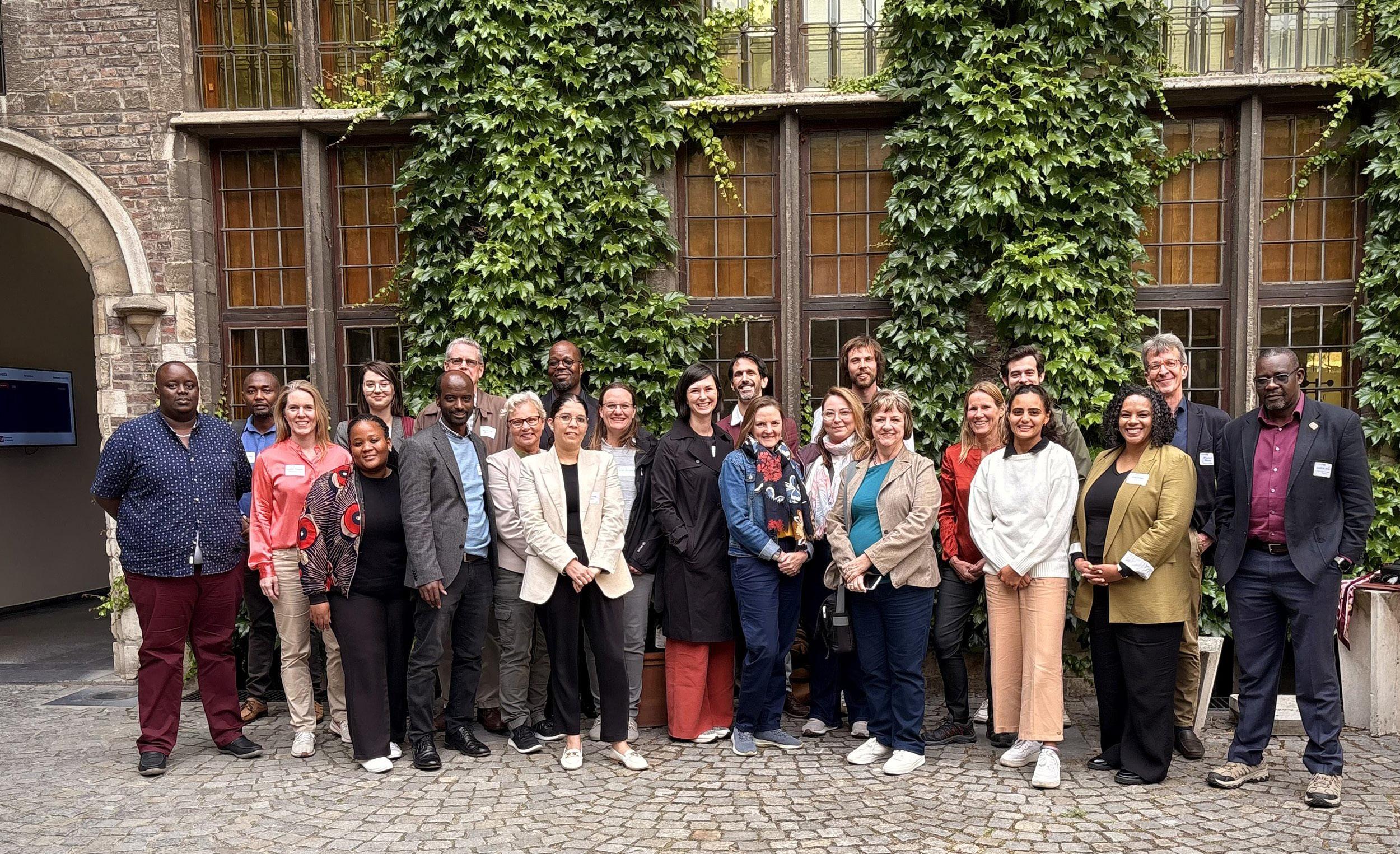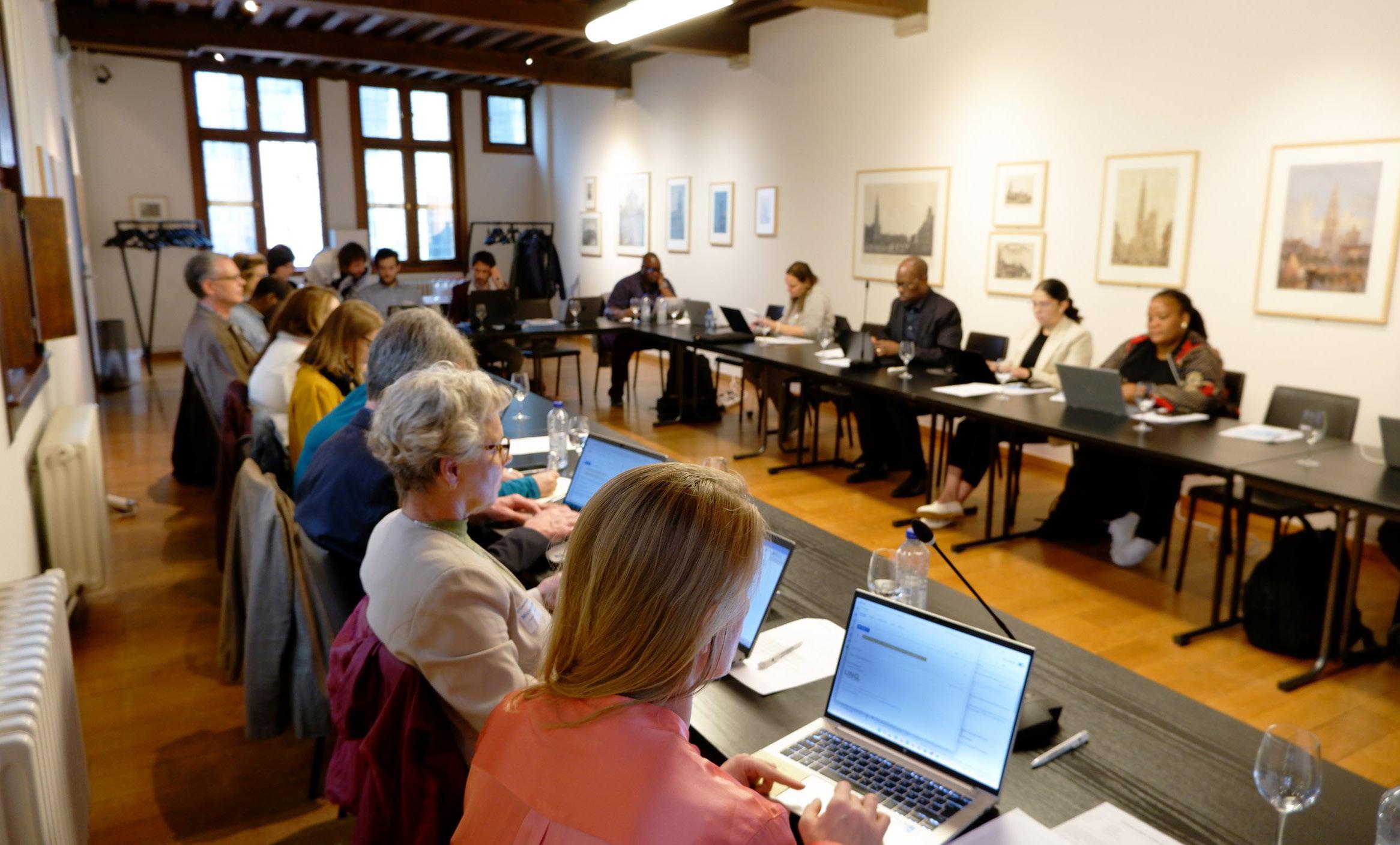
4 minute read
GENPATH AFRICA HOLDS SECOND ANNUAL MEETING IN ANTWERP
text:Dr Claudia Schacht, photos: Dr Cheryl Baxter and Hannah Faber
Two years into the project, the GenPath Africa consortium reunited for its second annual meeting on June 4-5, 2025, this time at the historic Hof van Liere at the University of Antwerp, Belgium. The hybrid event brought together partners from across Africa and Europe to reflect on the consortium’s progress, strengthen collaboration, and plan the next phase of the project.
Day 1: Scientific Progress and One Health Insights
Following a warm welcome by Cheryl Baxter (Stellenbosch University) and Claudia Schacht (LINQ), the meeting opened with in-depth presentations highlighting progress across the consortium. Project coordinator Tulio de Oliveira (Stellenbosch University) began the session with an overview of GenPath Africa’s progress in genomic surveillance, including tracking both existing and emerging pathogens. Annelies Van Rie (University of Antwerp) then shared updates on the PARR-TB study, which recently reached a major milestone with the enrolment of its first patient.
The study aims to use next-generation sequencing to improve diagnosis and clinical management of drug-resistant tuberculosis.
The afternoon focused on GenPath Africa’s One Health activities. Sam Oyola (International Livestock Research Institute) and Michele Miller (Stellenbosch University) shared progress in wastewater-based and genomic surveillance targeting zoonotic threats, including Rift Valley Fever virus and Mycobacterium tuberculosis, in rural South Africa and Kenya. This was followed by Gian van der Spuy (Stellenbosch University) who presented progress in the development of bioinformatics platforms and digital tools designed to streamline data management and analysis.
Capacity building was also a key focus. Cheryl Baxter and Suné Dyers (Stellenbosch University) highlighted hands-on training initiatives in genomic sequencing and analysis and announced the launch of a structured Master’s programme in Bioinformatics at Stellenbosch University, scheduled to begin in 2026. The day concluded with a dynamic brainstorming session led by led by Claudia Schacht (LINQ), exploring key exploitable results (KERs) across GenPath Africa’s work packages. Ranging from methodological innovations and strategic guidance to new insights and capacity-building, these KERs will remain central to all upcoming project activities and will serve as a guiding framework to ensure real-world impact across scientific, policy, and public health domains.
Day 2: Coordination, Communication, and Community
Day two opened with an overview of project management by Christoph Cyranski (LINQ), followed by a presentation on dissemination and communication achievements by Hannah Faber (LINQ). The morning continued with updates from representatives of several GenEpi Network working groups, who shared insights into ongoing collaborative initiatives and GenPath Africa’s contributions to strengthening genomic epidemiology across Sub-Saharan Africa as part of this network. After an interactive group work session and closing remarks by Cheryl Baxter, the meeting wrapped up on a high note with a light-hearted treasure hunt and a group outing through Antwerp’s historic city centre - celebrating both scientific advancement and community spirit.
Looking ahead
We extend our heartfelt thanks to all attendees – both on-site and online – for making GenPath Africa’s second annual meeting such a success. The consortium’s continued commitment and collaboration are instrumental in advancing the project and its goal to expand genomic surveillance in Africa.
GenPath Africa will expand genomics capacity to combat drug resistant HIV-1 and TB through precision medicine and by using genomic epidemiology to guide the public health response. Recent developments in wastewater and One Health surveillance will be applied to detect emerging pathogens. In addition, capacity development activities will include degree training in South Africa, the transfer of technology to the National Public Health Institute of Mozambique and the South African National Health Laboratory Service, and the collaboration with other key players and existing networks across the continent to harmonise training materials.
Through these activities we aim to make precision medicine and precision public health a reality in southern and eastern Africa.
In its mission to advance the impact of genomic surveillance, GenPath Africa has strong partners by its side. It is one of six projects that were created to form a Genomic Epidemiology Network in Sub-Saharan Africa. Together, this powerful new partnership aims to:
1) Increase the use of genomic epidemiology across Africa to answer critical public health questions.
2) Create data platforms through which integrated epidemiologic, clinical, and genomic data can be collected and combined.
3) Implement selected pilot projects that apply genomic epidemiology to specific disease areas and use the results to inform public health decision-making and product development.
4) Establish a community of practice, training programmes, and fellowship opportunities in genomic epidemiology on the continent.
More info: https://www.genpath-africa.org












